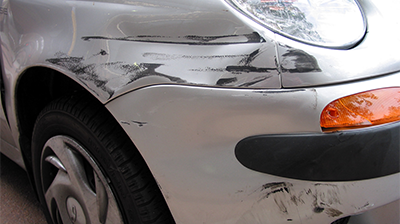
The Financial Conduct Authority (FCA) has intervened in the motor finance market for the second time in as many months, requiring multiple insurance firms to halt sales of Guaranteed Asset Protection (GAP) products over concerns that the product is failing to provide fair value to some consumers.
The move follows the FCA’s actions last September when it wrote to firms manufacturing GAP products asking them to take immediate action to prove customers are getting a fair deal.
The regulator said it had identified concerns with the design of GAP insurance across all distribution channels, claiming products were unlikely to be providing fair value to customers in line with the recently introduced Consumer Duty rules.
Now 80% of firms in this market have agreed to a pause with the regulator, which says it plans to carry out a second tranche of engagement with the rest of the GAP market, with the aim of improving the value of the product across all firms. These firms have agreed not to use new distributors of GAP in the interim.
Fair value
Consumer Duty requires firms to provide fair value to customers, ensure that products and services meet their needs, and provide good customer service.
According to the FCA’s latest fair value measures data, only 6% of the amount customers pay in premiums for GAP insurance is paid out in claims. The FCA says it has seen examples of some firms paying out 70% of the value of insurance premiums in commission to parties involved in selling GAP policies.
James Daley, founder of Fairer Finance, is one of several consumer campaigners to have spoken out in favour of regulatory action. “GAP insurance is usually sold by car dealers - at a time when the customer is already navigating a very large purchase, and is unlikely to have the opportunity to shop around.
“There’s a case to be made that selling this insurance at the point of sale should be banned altogether. But if dealers are to continue selling it, they are going to need to work much harder to choose insurers who can offer much more competitive prices, which are in proportion to the likelihood of making a claim.”
The FCA’s assessment of the value provided by GAP insurance includes data going back to 2008. Its 2014 market study found that only 10% of premiums were paid out in claims, on average, between 2008-2012.
|
FCA analysis of 2022 insurance data found:
|
Direct action
Sheldon Mills, Executive Director of Consumers and Competition, said: “GAP insurance can provide a useful service to customers, but in its current form it does not offer fair value and we want to see improvements.”
The regulator says it will consider firms’ proposals for different distribution channels, and recognises that some channels may be able to address these concerns more quickly.
Edward Peck, AFC CEO, said: “This is another example of FCA intervention having unintended consequences in terms of providing ‘fair value’ to the customer.
“The pricing structure adopted by motor dealers is complicated, and it is often practice to over-allow on the part-exchange and make up this shortfall with profit from other products. But with this additional flexibility now effectively removed, then the customer may well end up paying more through having to accept a lower trade in value for their part-exchange vehicle – the regulator needs to look more closely at how the market operates.”
The FCA has previously carried out a market study on insurance add-ons and introducing new rules specifically for GAP insurance.
Read AFC CEO Edward Peck’s warning on regulation creep.









